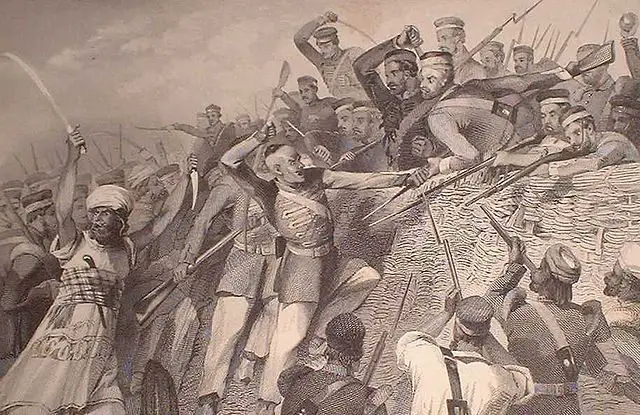Jonathan Dodd’s latest column. Guest opinion articles do not necessarily reflect the views of the publication. Ed
Here we are again, another Bank Holiday. I can’t have enough of them. Sadly, after this one, there won’t be any more until the end of August, which always feels a bit like the day before the end of the world, an intake of breath before the long descent into darkness before Christmas. How would we ever manage without Christmas?
But there was always Christmas, of course. I was corrected recently by the wonderful Professor Mary Beard in her fantastic series about Rome. I had always thought it was those pesky Christians who just renamed already-existing festivals wherever they spread to. It turns out that the Romans cracked that one long before the missionaries.
The Roman Empire never really fell
According to our Mary, the secret of the Romans’ success was that they never tried to destroy the culture of their conquered lands. They just set up their own alongside what was there and incorporated and adapted. Obviously the locals were upset about having Roman soldiers and Roman rule, but they were able to carry on otherwise just as they had before.

This turned out to be a wise move, and guaranteed that Rome’s influence continued to bear on Western civilisation, even to the present day. I love Mary’s enthusiasm about Rome, and she makes a good argument for the idea that the Roman Empire never really fell, it just adapted and moved on.
What did the Romans ever do for us?
So it was that the Romans turned up in England, there was a bit of a readjustment of population, and everyone settled down, more or less to a life that now included peace, roads, and proper baths. What did the Romans ever do for us, indeed? The other secret of their success turns out to be their laissez-faire attitude towards deities in general.

One of the things that has beset our proper progress here in the West has been our stubborn monotheism. We weren’t content to invade countries, defeat their armies and set up our own form of government before exploiting their natural resources to make ourselves even more rich. Such things are supposed to be entirely natural and acceptable, or at least not worth fighting over.
Having to dress it up somehow as being more worthy than it is
The thing we couldn’t get our heads round was that we didn’t feel the need to just go ahead and invade places because we could, we had to make excuses for our behaviour. Generally we would send in some disposable missionaries, who usually managed to annoy the natives so much that they were killed, which was the perfect excuse to send the army in. Then it was convenient to drag God in to talk about rescuing these poor savages from their ignorance of the truth.

I know that sounds a bit like the protagonists on both sides of the EU debate, but that’s not where I’m going this week. I don’t yet know where I’m going, of course, but it’s not down that road. What I’m really talking about is not having the confidence to do what you want to do without having to dress it up somehow as being more worthy than it is.
There are no rules
Morality is a strange beast. The bottom line of everything is that there are no rules. Actually, I should say there are no Rules. In nature, as it once was, everything was simply trying to grow and reproduce, and you either survived or you didn’t. There wasn’t anything out there that had consciousness, so there wasn’t any worry about whether anything anybody did was right or wrong.

We know this, even though we choose to ignore it because it makes us uncomfortable. Our precious lovely pet cats or dogs would happily hunt and slaughter any animals they could, because they don’t suffer the curse of morality. We control, with greater or lesser effect, their activities, and we offer them food as an alternative to finding their own. It’s part of the deal between humans and animals, and it works very well.
You have to avoid being dogmatic
The trouble starts when we look at interactions between humans. Animals don’t say “It’s not fair!”, and get resentful. People do. When we treat people (or pets) well they generally behave well. When they don’t, there’s trouble of one sort or another. This is a truth I hold to be self-evident. You can invade a country and impose your government, you can introduce trains and bureaucracy, but you have to avoid being dogmatic, or get ideas above yourself.

For instance, the English were so successful in India that they were able to raise fiercely-loyal local armies. But they caused the Indian Mutiny in 1857 that led to the Black Hole of Calcutta, because they forced their soldiers to use ammunition cartridges sealed with grease that originated from beef and pork. These cartridges needed to be torn open with the teeth, and thereby insulted the beliefs of both Hindu and Muslim soldiers. Similarly, Boudicca rose against the Romans because of injustice when they broke their own laws, not because she lived under Roman rule.
It’s far better just to get on with it
So invasion and alien rule aren’t necessarily a problem, but when morality is used to justify your actions, you had better make sure you follow those moral rules yourself. It’s far better just to get on with it. Vladimir Putin doesn’t worry about morality or attempt to prettify his actions in front of an audience. He doesn’t need to seek the approval of others. He gets away with whatever he can.

I wish we were more like the Romans. We should know what we want and we should work towards it. We should also recognise that everyone else is doing the same thing, and not attempt to judge them for their different practices or beliefs. Above all, we should stop thinking we’re the best, or most civilised, or greatest, or whatever, and we should finally grow up and learn to accept that there are other opinions out there, and other ways of doing things.
Less certain of our moral high ground
We need to stop saying that we’re doing the right thing and the good thing and the moral thing, especially when we’re not. We should be less certain of our moral high ground, and we should move over to allow others to join us there.

I had a friend many years ago, who went to India for a long time. When he came back I asked him how it was. This is what he said,
“The thing I liked most about India was the markets. Especially the stalls that sold religious stuff. They had lots of pictures of Siva, and Ganesh, and all the other Hindu Gods. And right alongside them were pictures of Jesus, and Buddha, and Mohammed, and others I’d never heard of. When I asked them about it, they just shrugged and smiled.”
Whatever label we hang on it
As far as they were concerned, they were all holy, so why not? I like that. So I hope you enjoy your Spring Bank Holiday. Which is also known as Whitsun, or Whit Sunday, which used to be Beltane, or the Roman festival of the goddess Flora, or Walpurgis in Germany. It’s the beginning of Summer, and it always has been, whatever label we hang on it, and whatever you get up to.

I think we should blame the Romans for that as well.
If you have been, thank you for reading this.
Image: Jonathan Billinger under CC BY 2.0
Image: public domain
Image: David Dixon under CC BY 2.0
Image: public domain
Image: mseckington under CC BY 2.0
Image: public domain
Image: jedimentat under CC BY 2.0
Image: Thomas Schoch under CC BY 2.0
Image: javierpais under CC BY 2.0





